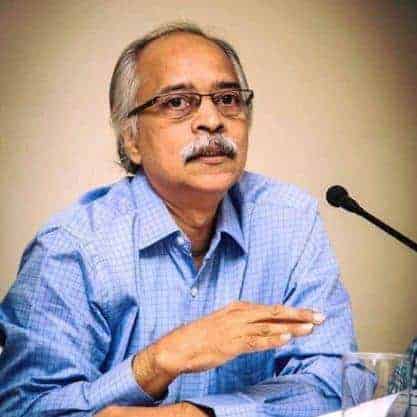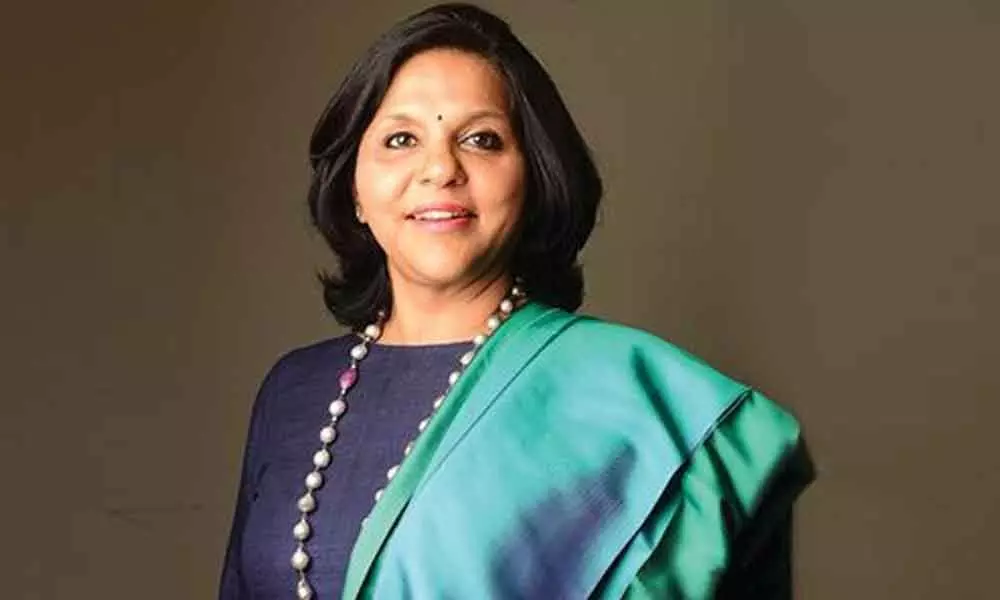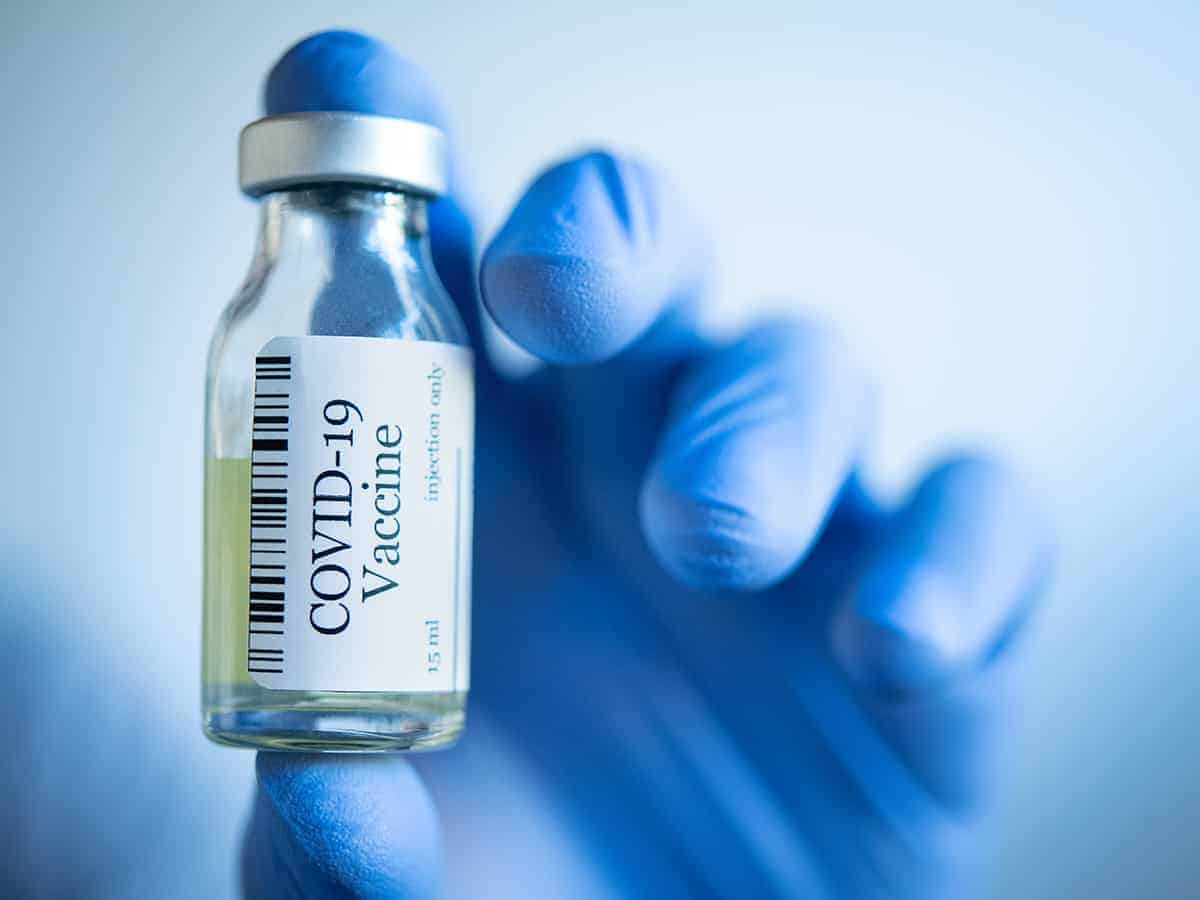
When Dr Sangita Reddy, the Joint Managing Director of the Apollo Group of Hospitals, Hyderabad announced recently that she tested positive for COVID-19 after successfully dodging the virus for 500 days, it hit headlines.
The next statement was that she used a cocktail therapy of drugs developed by Roche-Regeneron that brought down the infection load to a minimum within a couple of days, after early detection and medication.

Sangita Reddy also made a point that vaccination helps keep the symptoms mild and is not a complete prevention. She had taken both doses of the vaccine prior to infection. The Apollo Hospitals had launched the cocktail therapy in May to treat patients with mild to moderate symptoms.
At the end of May, the Asian Institute of Gastroenterology (AIG) Hospitals, Hyderabad, chairperson, Dr D Nageshwar Reddy had said the cocktail therapy can help COVID-19 patients recover within a week. He said a large study to understand its efficacy on mutated variants of the virus causing COVID-19 too was being carried out.
In the first week of June, reports claimed that the Ahmedabad based, Zydus Cadila’s neutralising monoclonal antibodies (mAbs)-based cocktail for the treatment of COVID-19 was given permission to conduct clinical trials by the Drug regulator.
The company says that its biological therapy ZRC-3308, a cocktail of two SARS-CoV-2-neutralising monoclonal antibodies (mAbs) can emerge as one of the main treatments for mild COVID-19 in the near future.
The Bengaluru-based, biopharmaceutical company Biocon launched its anti-CD6 monoclonal therapy itolizumab, for people with moderate to severe COVID-19 as early as June 2020, after the nod from the Drug Controller. It attracted strong criticism from physicians, who argued that the sample size for the trial was too small.
Trump and Regeneron
The Regen mAb cocktail developed by Roche-Regeneron, first shot to limelight, when the experimental therapy was administered to US President, Donald Trump in October 2020. The US Food & Drug Administration had given emergency use authorisation (EUA).
In the first week of May, as India was battling a severe, second wave of the virus with lakhs of cases daily, the drug controller accorded the EUA to manufacture the drug cocktail. The decision was based on data filed with the USFDA and the European regulatory panel, according to Cipla, the Indian partner of Roche to distribute the drug.
The therapy is a cocktail of two antibodies Casirivimab and Imdevimab, which are synthetically manufactured copies of antibodies that the body produces after an infection. Once given to COVID-19 patients, specially at high risk of developing severe illness, it has shown to reduce hospitalisation period significantly.
The therapy is particularly useful for patients aged more than 65 years, those with obesity, uncontrolled diabetes, cardiovascular issues and those who are under immunosuppressant. It is best given in hospital conditions to manage any issues that might arise during infusion, Dr Nageshwar Reddy said.
The single time therapy costs about Rs 60,000 in India at present. It is among the latest of several treatment methods that doctors have been trying out to control and treat people from the virus in the past one year. The costs are high due to the hospitalisation required, the expertise in administering and the procedure needed at present.
What are Monoclonal Antibodies?
Monoclonal antibodies are identical copies of an antibody that targets one specific antigen. Antigens are substances that trigger the body’s immune system to generate antibodies to defend, lime a virus, bacteria etc.
Scientists can artificially make monoclonal antibodies by exposing white blood cells to a particular antigen. They can then select a single white blood cell or clone and use this as the basis to produce many identical cells, making many identical copies of the monoclonal antibody.
Treatments using monoclonal antibodies are not new. They have been used in the management of viral infections like HIV/AIDS and Ebola. Monoclonal antibodies are artificially created in a laboratory and tailor-made to fight a particular disease.
Each monoclonal antibody is specific to its matching antigen. For COVID-19, there are several authorized monoclonal antibody therapies now.
There have been concerns that the use of monoclonal antibodies may cause antibody dependent enhancement (ADE).
This occurs when the bound antibody further promotes, rather than prevents, the virus’s entry into cells. As a result, the virus can replicate more effectively within the cell. So far, there is no evidence to suggest that COVID-19 monoclonal antibodies can cause this phenomenon, according to scientific literature.
The Monoclonal Antibodies story
The 1984 Nobel Prize for Physiology and Medicine was won by Dr Neils Jerne, Dr Cesar Milstein and Dr Georges J F Kohler for their combined effort of over a decade of independently working out the various aspects of monoclonal antibodies.
Today thousands of monoclonal antibodies are produced by hundreds of biotech companies. There is a fast growing diagnostic industry based on monoclonal antibodies. Now, monoclonal antibody mediated therapy is the growing field of application.
Among the many established applications of monoclonal antibodies are found in the treatment of certain cancers, multiple sclerosis, psoriasis, rheumatoid arthritis, viral infections, substance abuse etc.
Monoclonal Antibodies and Hyderabad
Coincidentally, two of the three Nobel laureates responsible for the discovery of monoclonal antibodies—Cesar Milstein and Dr Georges Kohler visited Hyderabad in 1983 and 1987 respectively and lectured at the Centre for Cellular and Molecular Biology (CCMB).
Interestingly, Dr Milstein’s visit happened in the middle of 1983, a full year ahead of his winning the coveted prize. At the lecture in the CCMB, which I had the privilege of reporting, Dr P M Bhargava, the then Director of the lab, which was part of the Regional Research Laboratory, Hyderabad ( RRLH) had remarked that the ground breaking work of the scientist was fit to win the Nobel Prize.
Though, for a cub reporter with the PTI news agency, I just could not understand the substance of Dr Milstein’s lecture, Dr Bhargava’s comments, were enough to seek more clarifications post the lecture and put out a story. To my utter surprise, the Argentine born scientist, who worked in Oxford University, Cambridge, was declared winner of the 1984 Nobel prize for his contributions to producing monoclonal antibodies using hybrids as a technology.
Dr Kohler, the German born scientist on the other hand visited CCMB for the great, grand and gala launch of the molecular biology lab by the then Prime Minister, Rajiv Gandhi. The event saw at least 6 Nobel Laureates, including Dr Francis Crick, co-discoverer of the DNA with Dr James Watson and a couple of hundred scientists from across the world. Dr Kohler remains one of the youngest to win the Prize at the age of 38.
His technique developed with Milstein (sadly both have passed away) for producing monoclonal antibodies laid the foundation for the exploitation of antibodies for diagnostics, therapeutics and a wide and growing range of applications nearly four decades later.
Somasekhar Mulugu, former Associate Editor & Chief of Bureau of The Hindu BusinessLine, is a well-known political, business and science writer and analyst based in Hyderabad

